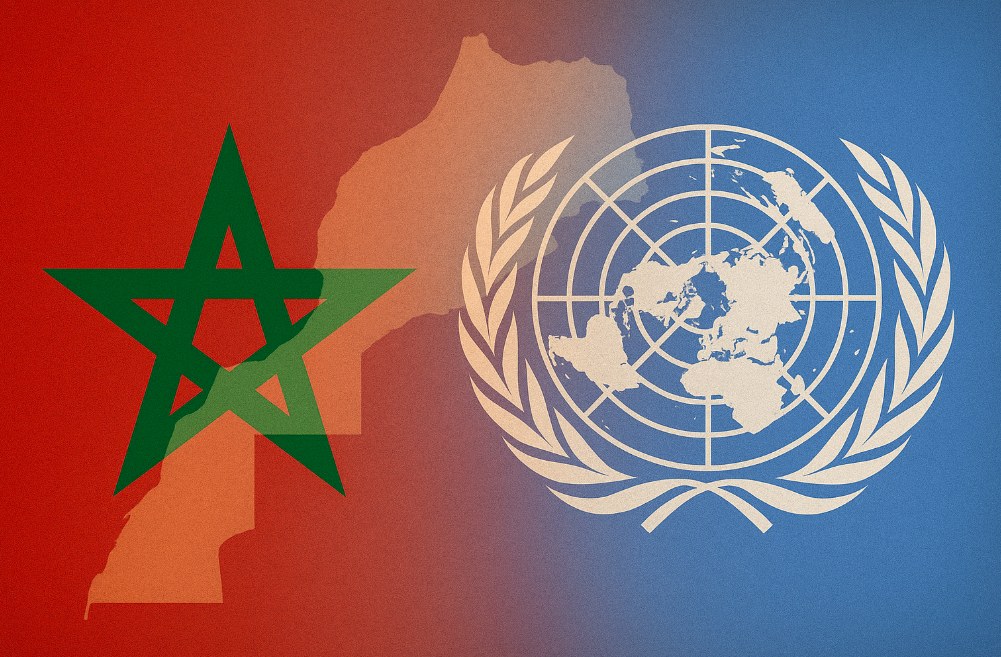Polisario Front says ‘No to surrendering, no to occupation’
Polisario Front says ‘No to surrendering, no to occupation’
By Ali Rıza Taşdelen
On 31 October 2025 the United Nations Security Council adopted Resolution 2797 (2025), extending the mandate of the United Nations Mission for the Referendum in Western Sahara (MINURSO) until 31 October 2026. MINURSO was established under a 1991 resolution to organize a referendum against Morocco’s occupation of Western Sahara. Its mandate has routinely been renewed in three or six-month increments. But a referendum has never taken place, because Morocco treats the occupied territory as an autonomous region under its sovereignty.
This time, the draft resolution was put forward by the US. This time, in addition to extending MINURSO’s term, the resolution stated the “sole option is autonomy for Western Sahara under Moroccan sovereignty”. This is an imposition on the Security Council to legitimize Morocco’s occupation. By adopting this resolution, the UN is abandoning its 34-year stance and tailing the US’ policy.
Polisario Front: No to surrendering, no to occupation
The Polisario Front, which fights for Western Sahara’s independence, issued a statement after the decision saying: “The Polisario Front stresses that it will not participate in any political process or negotiation, irrespective of who puts it forward, that aims to ‘legitimize’ Morocco’s illegal occupation of Western Sahara and deprive the Sahrawi people of their right to self-determination and sovereignty over their homeland.”
The statement concludes: “The Polisario Front emphasizes that unilateral approaches that sacrifice the rule of law, justice and peace for short-term political goals will only inflame the conflict and jeopardize peace, security and stability across the entire region.” Polisario consistently affirms its commitment to peace, but it rejects negotiations that amount to legal capitulation or acceptance of the occupation.
By getting support from permanent Security Council members the US, France and the UK, Morocco’s this diplomatic move is not aimed at a diplomatic gain, but at buying time: to expand demographic colonization, deepen the economic exploitation of occupied territory, broaden military control networks, tighten repression in Sahrawi towns, and await de facto recognition of its illegal occupation.
China, Russia and Pakistan abstain
The UN Security Council’s decision quickly drew criticism. Many delegations argued that the resolution violates the Sahrawi people’s inalienable right to freedom. Some voiced reservations, others even refused to participate in the vote.
According to China’s permanent representative, the resolution “does not fully reflect the latest developments.” China abstained, citing the lack of “an inclusive consultation process.”
The Russian delegation led by Vasily Nebenzia also abstained, calling the resolution “unbalanced” and as failing to provide a coherent foundation for the decolonization of Western Sahara. Nebenzia reiterated that the Sahrawi people’s right to self-determination is a fundamental principle enshrined in the UN’s legal framework. He warned against the politicization of the Security Council for specific agendas.
Pakistan’s permanent representative Asim Iftikhar Ahmad likewise abstained, describing the right to self-determination as a “sacred and inviolable principle.”
Algeria rejects
Algeria, which openly opposes Morocco’s occupation, supports the Polisario Front, and hosts nearly 200,000 Sahrawi refugees, rejected the resolution as “inconsistent with the UN’s decolonization doctrine” and did not take part in the vote. Algeria’s permanent representative Amar Ben Jamaa condemned the resolution by saying it is biased, neither reflects the Sahrawi people’s right to self-determination nor incorporates the proposals of the Polisario Front. He reiterated that “the right to self-determination is not a rhetorical slogan but a binding legal principle,” and that any solution respecting this right would be the guarantee of permanent peace in the region.
Fifty years of occupation
For two centuries, Western Sahara remained a Portuguese colony until Spain emerged as the victorious colonial power among European rivalries. Following the 1884 Berlin Conference, Spain formalized its colonial rule. In 1973, the Polisario Front was founded and launched an armed struggle for independence against Spain. In 1975 with the Madrid Accords, Spain withdrew from Western Sahara, handing over administrative control to Morocco and Mauritania. The territory was divided between these two countries.
After Spain’s departure, the US backed Morocco’s occupation by providing intelligence and weapons support. On 27 February 1976 shortly after Spain’s withdrawal, the Polisario Front proclaimed the establishment of the Sahrawi Arab Democratic Republic (SADR). Mauritania reached an agreement with the SADR and withdrew from the region in 1979. After that, Morocco also occupied the southern part previously held by Mauritania.
The countries backing and protecting Morocco: US, Israel, France
Washington supports Morocco’s autonomy plan under Moroccan control. In 2020, Donald Trump announced the normalization of relations between Morocco and Israel and recognized Moroccan sovereignty over Western Sahara. France followed suit last year and announced its recognition of Morocco’s autonomy plan.
However, the Polisario Front continues to reject this autonomy plan and struggles for full independence for five decades.
















Leave a Reply